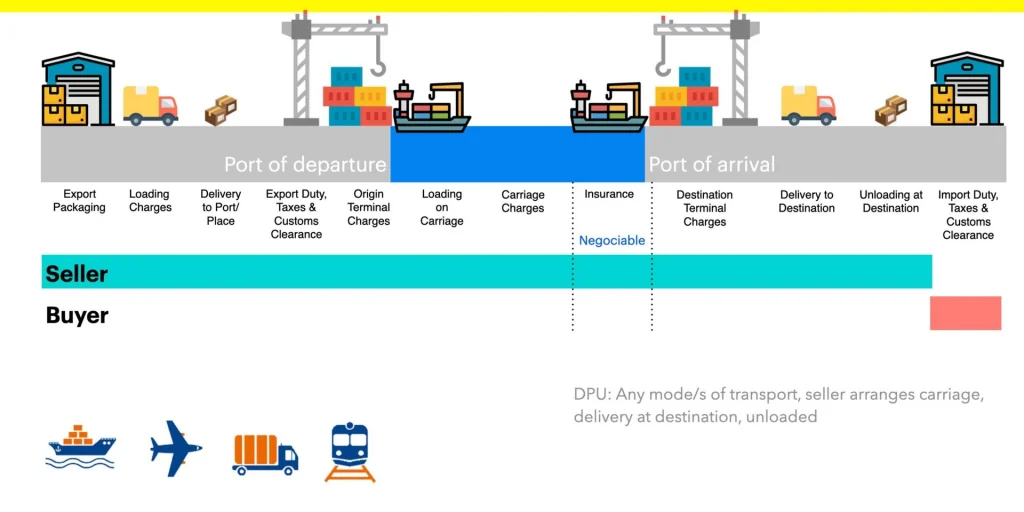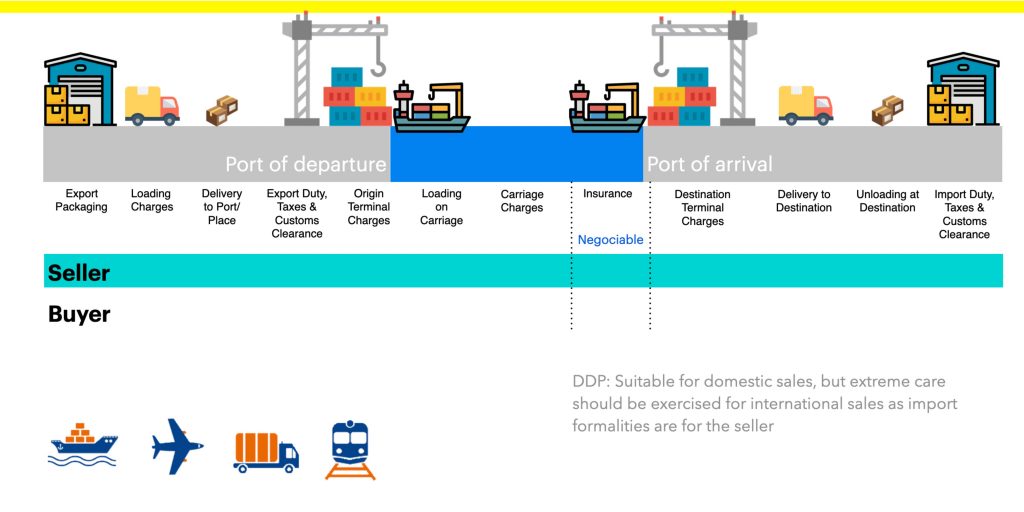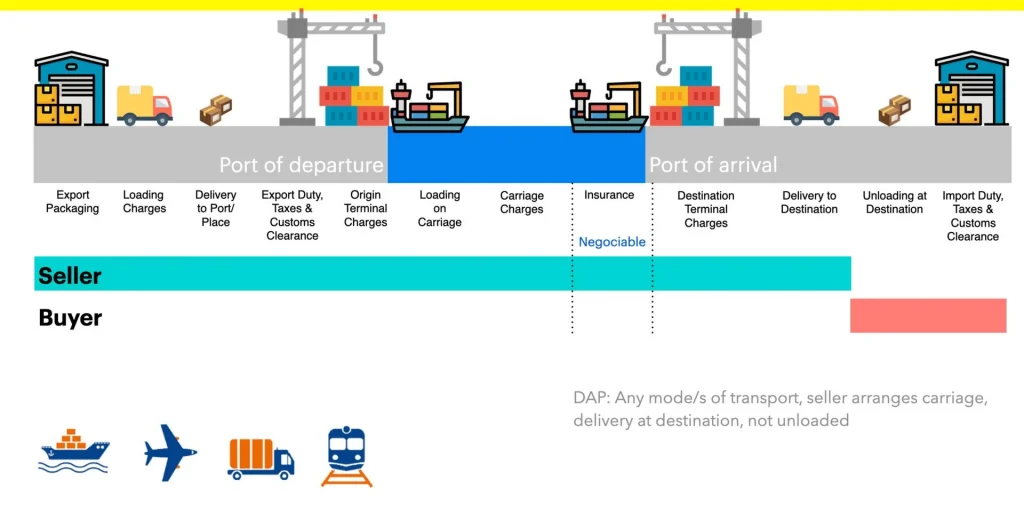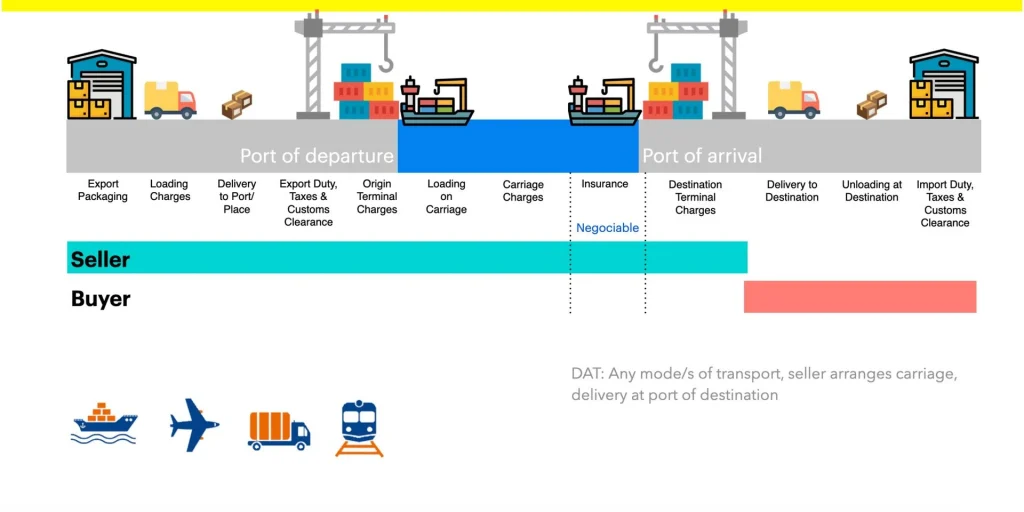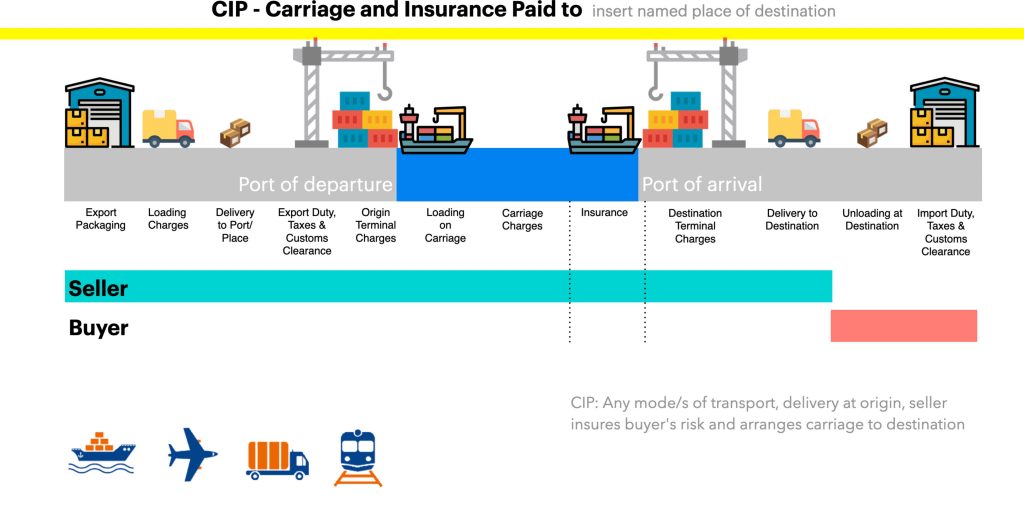DAP (Delivered at Place) DAP (Delivered at Place) is one of the 11 Incoterms defined in the Incoterms 2020, published by the International Chamber of Commerce (ICC). It is an Incoterm that is commonly used in international trade when the buyer and seller are located in different countries and the seller is responsible for arranging and paying for the transportation of the goods to a named place at the destination. Under DAP, the seller is responsible for delivering the goods at a named place at the destination, obtaining any necessary export licenses or permits, and unloading the goods at the place of delivery. The buyer is responsible for arranging and paying for the transportation of the goods from the place of delivery to the final destination, obtaining any necessary import licenses or permits, and paying any applicable duties or taxes. The risk of loss or damage to the goods passes from the seller to the buyer when the goods are delivered at the named place. Responsibilities and Obligations of Buyer and Seller The seller’s responsibilities under DAP include: Delivering the goods at a named place at the destination Obtaining any necessary export licenses or permits Unloading the goods at the place of delivery The buyer’s responsibilities under DAP include: Arranging and paying for the transportation of the goods from the place of delivery to the final destination Obtaining any necessary import licenses or permits Paying any applicable duties or taxes Bearing the risk of loss or damage to the goods once they are delivered at the named place Advantages of using DAP include: The seller is responsible for delivering the goods at a named place at the destination, which eliminates the need for the buyer to arrange for the goods to be transported to the final destination. The buyer can inspect the goods at the place of delivery before taking possession, allowing for any potential issues to be addressed before the goods are moved to the final destination. The seller is also responsible for unloading the goods, which can be beneficial for the buyer if they do not have the resources or capabilities to unload the goods themselves. Disadvantages of using DAP include: The buyer is responsible for arranging and paying for the transportation of the goods from the place of delivery to the final destination, which can be a costly and complex process. The buyer is also responsible for obtaining any necessary import licenses or permits and paying any applicable duties or taxes The buyer bears the risk of loss or damage to the goods once they are delivered at the named place Examples of when to use DAP include: When the buyer is located near the named place of delivery and has the capability to arrange for the transportation of the goods from the place of delivery to the final destination When the buyer wants to inspect the goods at the place of delivery before taking possession When the goods are bulky or heavy and require special handling or equipment to unload. When the goods are perishable or require special storage conditions and the named place of delivery has the necessary facilities to meet those needs. It’s important to note that DAP is a more advanced Incoterm than EXW, FCA, FAS, FOB, CPT, CIP, and DAT and it shifts some of the responsibilities and risks from the buyer to the seller. It’s important for both buyer and seller to carefully consider their capabilities and resources before choosing to use DAP in a trade agreement, and to consult with legal and logistics experts to ensure compliance with laws and regulations. Additionally, it’s important to agree and specify the exact place of delivery, and any other relevant details in the sales contract. The buyer should also be aware that DAP does not include loading of the goods, so the buyer should consider this before using this Incoterm. It is also important for the buyer to check that the place of delivery is accessible for the type of transport used for the goods.

